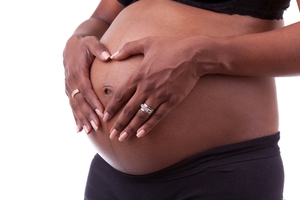New UKHSA study provides more safety data on COVID-19 vaccines in pregnancy
Analysis by the UK Health Security Agency in women giving birth has reinforced international evidence that COVID-19 vaccines have good safety record in pregnant women.

This is the first data published in England and it showed that those women who had received coronavirus (COVID-19) vaccination had good birth outcomes.
In the 8-month period between January and August 2021, 355,299 women gave birth – of whom 24,759 had received at least one dose of COVID-19 vaccine prior to delivery. Existing evidence shows women with COVID-19 disease in later pregnancy are at increased risk of severe disease requiring hospital and intensive care admission.
Vaccines are effective at preventing severe disease – no fully vaccinated pregnant women were admitted to intensive care with COVID-19 in England between February and the end of September 2021 (UK Obstetric Surveillance System data).
COVID-19 vaccines have now been administered to thousands of pregnant women in this country.
The analysis looked at women who gave birth up to August this year and, reassuringly, found that there is a similar very low risk of still birth, prematurity and low birth weight in vaccinated and unvaccinated women. However, people who are vaccinated are far more protected against serious COVID-19 than those who are unvaccinated.
The preliminary data showed that:
-
the stillbirth rate for vaccinated women who gave birth was approximately 3.35 per 1,000, a similar rate for unvaccinated women (3.60 per 1,000) seen in January to August 2021
-
in the same period, the proportion of vaccinated women giving birth to babies with low birthweight (5.28%) was similar to the proportion for unvaccinated women (5.36%)
-
the proportion of premature births was 6.51% for vaccinated and 5.99% for unvaccinated women
The small differences between groups may be explained by differences in the women eligible for and taking up the vaccine. Women first eligible for vaccination were more likely to be older and to have an underlying medical condition. These groups are at higher general risk of certain pregnancy outcomes, such as prematurity.
The data also showed that women living in the most deprived areas in England were least likely to have been vaccinated with at least one dose of COVID-19 vaccine before they gave birth. Just 7.8% of women living in more deprived areas of England had a vaccine while pregnant, compared to 26.5% in less deprived areas.
Pregnant women of Black ethnicity were also the least likely to be vaccinated at the time of birth (5.5%), followed by women of Asian ethnicity (13.5%) and Mixed ethnicity (14.0%) – with women who were from a White background being the most vaccinated (17.5%).
Dr Mary Ramsay, Head of Immunisation at UKHSA, said:
We already know that getting vaccinated is the best way to protect yourself from serious illness. If you haven’t already been vaccinated, this new information should add to the reassuring safety data. Every pregnant woman who has not yet been vaccinated should feel confident to go and get the jab, and that this will help to prevent the serious consequences of catching COVID-19 in pregnancy. This accumulating evidence will also allow midwives and other health professionals to provide better information to pregnant women and help to drive uptake higher.
Our figures also highlight stark inequalities in uptake with many of the most vulnerable women in our society going unvaccinated. It is vital that women of all backgrounds accept their offer of their vaccine in order to protect themselves.
UK Health Security Agency press office
Nobel House
17 Smith Square
London
SW1P 3JR